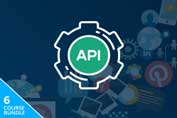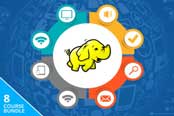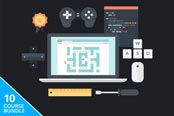Parenting 2.0. Healing your past wounds, managing stressful situations as parents, parenting with calm, love, acceptance
A happy parent has a great chance to have happy kids, because children tend to copy moods, and behaviors, actions and states of being, rather than words and empty commands. They become what they see, not what they are told to.
Grab this Udemy course for Free :https://www.udemy.com/course/neuroscience-for-parents-happy-parents-happier-kids/?couponCode=BTS2020
We live in a society which doesn't really make a parent's "job" easier. True, we have diapers and washing machines, but we are expected to excel in this parenting job (which by the way, it is never considered to be a PROPER job, though it can be quite exhausting) among all our other jobs and duties.
An old lady, a grandmother of 4 nephews and mother of 2 daughters, once told me, seeing me on the plane with my two active and always curious boys :"You know, had I been a mother in these times, with all the facilities, I don't think I would have made it. Honestly. It is just too much and too hard."
I thought about that and realized she is right. Too much information, contradictory at times, too much pressure to be perfect in all areas, we are too exposed to our imperfections (by comparing our children with the GLOBE) and too obliged to do it all PERFECT. And the more we try to fix our kids, the more unhappy and trapped we feel.
What makes a parent happy? What do we need to feel happy and fulfilled? Not just in the relationship with the child, but in relationship with ourselves.
My name is Ina Ilie, I am the mother of two, I studied psychopedagogy, I have a masters degree in Cognitive Science, I conduct parenting workshops and I do counseling sessions with parents like you, helping them understand the real reasons of their struggling and find the answers they were searching for.
Most parenting courses focus on children, in an attempt to fix their behavior, trying to make them more disciplined, a bit less nervous, help them cope with their emotions, in other words attempting to change the kids and their reactions. But the core problem, that of the nature of the relationship between children and parents, the one that matters the most, that is not addressed and the happiness is not necessarily attained.
The happiness of me as a parent stands on the happiness of me as a human being. If we, as human beings, have unsolved problems, or unhealed wounds from the past, we'll most probably pass them to our children. And then, through all sorts of so called “parenting” techniques and methods, try to fix them in the child. Our problems! So of course we find it difficult, of course the result is not always the best.
In this course I go to the core problem, how to be happy as human beings, in order to be happy as parents, and then, have happy kids, taking our happiness as a model. Because the trick is: CHILDREN COPY US, WE ARE MODELS for them. So a true efficient parenting course must focus on how parents really feel, how fulfilled they are, how balanced their relationships are, how satisfying is life for them.
At the end of this Neuroscience for Parents course, I hope that you can have a better understanding of what makes you happy and how you can infuse that happiness in the relationship with your child.
Udemy course :https://www.udemy.com/course/neuroscience-for-parents-happy-parents-happier-kids/?couponCode=BTS2020
- - -















 PureVPN Discount Coupon Code 84% Off for Lifetime Subscription
PureVPN Discount Coupon Code 84% Off for Lifetime Subscription Scrivener Discount Coupon for Windows and Scrivener 2 for MAC - 35% Off
Scrivener Discount Coupon for Windows and Scrivener 2 for MAC - 35% Off Roadmap Planner Discount Coupon 95% Off for Lifetime Professional Plan
Roadmap Planner Discount Coupon 95% Off for Lifetime Professional Plan Bizplan Premium Discount Coupon 97% Off for Lifetime Subscription
Bizplan Premium Discount Coupon 97% Off for Lifetime Subscription